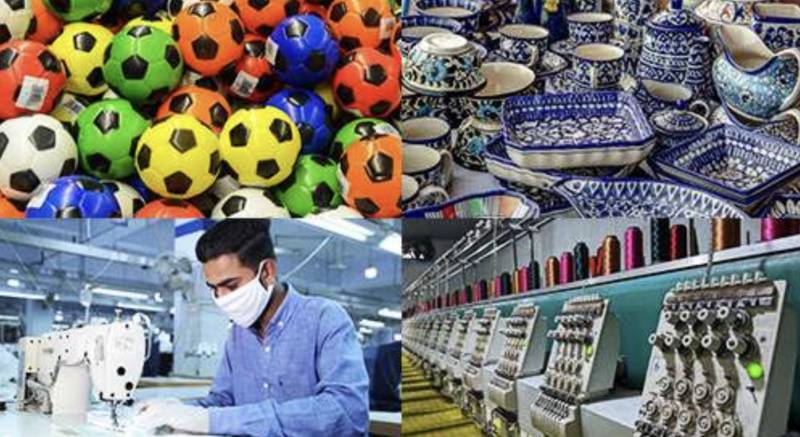SMEs or small and medium sized enterprises can be defined as, self-regulating organizations, which tend to have less than a certain threshold of workers. These small industries are commonly those with less than 50 staff members. SMEs are a vital component of the economy of a country. Suchfirmsareintegralincateringtothenichemarketandtheir significance in terms of exports, production and providing employment, is incomparable.
The Pakistani economy consists of almost 3.3 million Small and Medium Enterprises. These may consist of (amongst many other variants) service providers, manufacturing units and startups. SMEs make up over 30% of Pakistan’s GDP and approximately 25% of generating exports.
SMEs in Pakistan face a number of restraints due to fluctuating economy. As a result, such conflicting policies have slowed down the progression in these industries. The small businesses in the state are self-governing bodies with little to no regulation, which causes hindrances in accessing financial services and funds when the need arises.
Since SMEs are self-regulating independent industries, and lie outside the governmental regulatory structure, financial establishments find it challenging to evaluate them for potential loans and other fiscal services. As a result, this acts as a deterrent in loan acquisition, indemnity guarantees and also makes them susceptible to high lending rates.
Apart from financial restrictions, power shortage is one of the major problems that SMEs encounter on a day-to-day basis. Power supply issues and unscheduled hourly power cuts have long-term effects on the productivity, profitability and scalability of small-scale businesses.
If the SME segment in Pakistan is brought into the government’s regulatory framework, it can reach it’s true potential. With the accessibility of complete information, banking and other financial institutions will be able to help these firms grow their identities, besides assisting in the development of the country’s economy.
The only way SMEs can improve is to embrace standard protocols and procedures as parameters of their operations and it is our job to encourage them to explore new and improved business structures that can better aid in productivity. The SMEs in Pakistan are slowly taking a backbench, as commercialization is on the rise. It’s our civic duty to encourage the individuals working in such small businesses and appreciate their skills.
Skills such as terracotta pottery, traditional jewelry making such as the craftsmanship in Balochistan, or cobblers who make exquisite Peshawari chappals in the bazaars of Peshawar, the art of crochet and hand embroidery are skills that have been passed on by generations.
These things specifically apply to the rural areas, where these services are a mean of livelihood for men and women. We need to highlight the craftsmanship and creativity of our people and support the trades of millions of these skilled artisans.
In this regard, an initiative such as the National Amateur Short Film Festival (NASFF) is a breath of fresh air. The youth from all walks of life can showcase a different side of Pakistan through the art of visual storytelling. The NASFF is the perfect platform for students and amateur filmmakers to make a mark on the masses by creating short films depicting the true essence of Pakistan as a nation.
Using SMEs as a theme for creative storytelling in the NASFF individuals can change the narrative of commercialization and its effects on small businesses and encourage people to look at the skills and talents of the people residing in small localities as well as the rural areas. This would open up avenues not only for the SME sector; it would bring Pakistani goods in the limelight as well, resulting in a better economy in the longer run.
If you wish to register for the NASFF, click on the link






